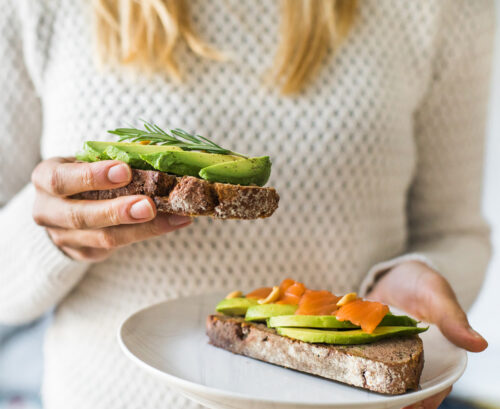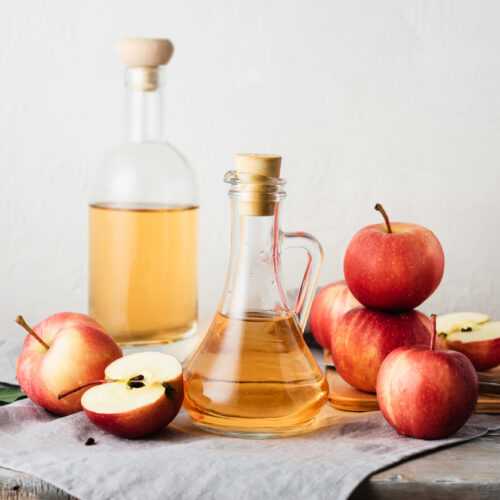
Eating two or more servings of avocado a week may cut your risk of cardiovascular disease by 16 per cent, according to a new study.
Researchers at Harvard University analysed data from two large US studies: the Health Professionals Follow-Up Study and the Nurses’ Health Study. Between 1986 and 2016, researchers followed more than 41,000 men from the Health Professionals Follow-Up Study (aged 40-75 years) and more than 68,000 women (aged 30-55 years) from the Nurses’ Health Study.
To take part in the study, participants had to be free of cancer, coronary heart disease and stroke. Every two years after that, they completed a questionnaire on their health and lifestyle. And every four years, they completed a questionnaire on what they ate.
The researchers recorded the number of cardiovascular disease cases, including coronary heart disease and stroke, that occurred during the 30-year study period. Those who ate two or more servings of avocado each week had a 16 per cent lower risk of cardiovascular disease and 21 per cent lower risk of coronary heart disease compared with those who avoided or rarely ate the fruit. (A serving of avocado was defined as half an avocado – about 80g.)
Replacing half a serving a day of egg, butter, cheese, margarine or processed red meat with the same amount of avocado was associated with a 16per cent-22 per cent lower risk of cardiovascular disease. But substituting half a serving a day of avocado for the same amount of olive oil, nuts and other plant oils showed no extra benefit.
The strengths of the study are that it involved over 110,000 participants and had a long follow-up period. The researchers also took many things into account that could affect the results, such as whether or not people smoked, their body weight, how active they were, and the medicines they took.
However, one of the big limitations is that the participants were mostly white healthcare professionals, which means the findings might not apply to other population groups. Racial and ethnic differences in cardiovascular disease were not acknowledged in the study. Yet people from ethnic minority groups experience a disproportionately greater burden of cardiovascular disease.
Another limitation is that diet information was self-reported. Participants may have under- or over-reported their avocado intake. After all, who can accurately recall what they ate last month, let alone over the past four years?
This type of study is an observational study, which means it can’t prove that eating avocados reduces your risk of cardiovascular disease. It can only show that there is a probable (“statistically significant”) link between eating avocados and a reduced risk of cardiovascular disease.
Overall diet is what counts
In the study, researchers found that those who had higher intakes of avocado also had better diet quality, eating more fruit, vegetables, whole grains and nuts. This shows that no single food like avocado is the solution to preventing heart disease. But having an overall healthy, balanced diet with a variety of nutritious foods is key to promoting good heart health.
Overall diet quality matters, and it is equally important to eat less salt, food and drinks containing high amounts of free sugars and fatty foods.
While the study does have some promising findings to encourage the addition of avocado to the diet, not everyone likes the taste of this fruit. It might also be expensive for some people to buy regularly, and others might have some concerns about how sustainable they are.
You could consider including peanut butter, almonds, cashews, hazelnuts, peanuts, rapeseed oil, olive oil, olives and seeds, such as pumpkin and sesame seeds, in your diet instead, as these are also great sources of monounsaturated fats – the heart-healthy fat found in avos.
Even though a healthy diet is important for preventing heart disease, being active, not smoking, and reducing your alcohol intake can also help to maintain good heart health, which should not be overlooked.![]()
This article is republished from The Conversation under a Creative Commons license. Read the original article.
Avocado recipes you might be interested in:
- Fish tacos with corn and avocado salsa
- Avocado, cucumber and lime cream dressing
- Smoky beef and vege fajitas with avocado salsa
- Chocolate avocado mousse
- Sushi and avocado salad with garlic mayonnaise
- Mini prawn tortillas with smashed avocado and salsa
- Spicy avocado, salmon and baby spinach on toast
- Corn and capsicum fritters with avocado smash
Article sources and references
- Lorena S. Pacheco PhD, MPH, RDN, Yanping Li PhD , Eric B. Rimm ScD , JoAnn E. Manson MD, DrPH , Qi Sun MD, ScD, MMS , Kathryn Rexrode MD, MPH , et al. Avocado Consumption and Risk of Cardiovascular Disease in US Adults. ournal of the American Heart Association. 2022;11:e024014, 30 Mar 2022https://doi.org/10.1161/JAHA.121.024014https://www.ahajournals.org/doi/10.1161/JAHA.121.024014
- Forouhi NG, Sattar N. CVD risk factors and ethnicity--a homogeneous relationship? Atheroscler Suppl. 2006 Apr;7(1):11-9. doi: 10.1016/j.atherosclerosissup.2006.01.003. Epub 2006 Feb 24. PMID: 16500156.https://pubmed.ncbi.nlm.nih.gov/16500156/
- BDA The Association of UK Dietitians. Heart Health: Food Fact Sheethttps://www.bda.uk.com/resource/heart-health.html
- Sustainable Food Trust, 31 January 2020 Why our love for avocados is not sustainablehttps://sustainablefoodtrust.org/articles/why-our-love-for-avocados-is-not-sustainable/
- Sharifi-Rad, Javad et al. “Diet, Lifestyle and Cardiovascular Diseases: Linking Pathophysiology to Cardioprotective Effects of Natural Bioactive Compounds.” International journal of environmental research and public health vol. 17,7 2326. 30 Mar. 2020, doi:10.3390/ijerph17072326https://www.ncbi.nlm.nih.gov/pmc/articles/PMC7177934/
www.healthyfood.com










